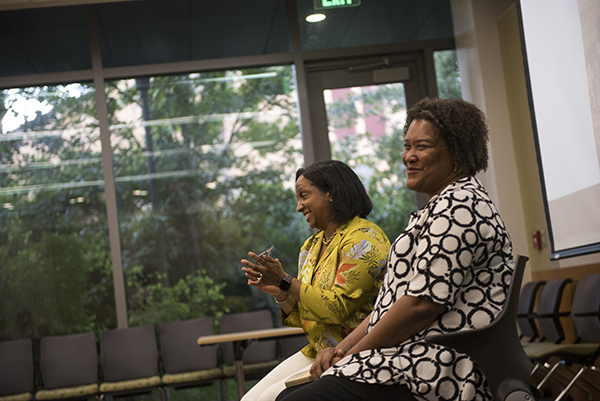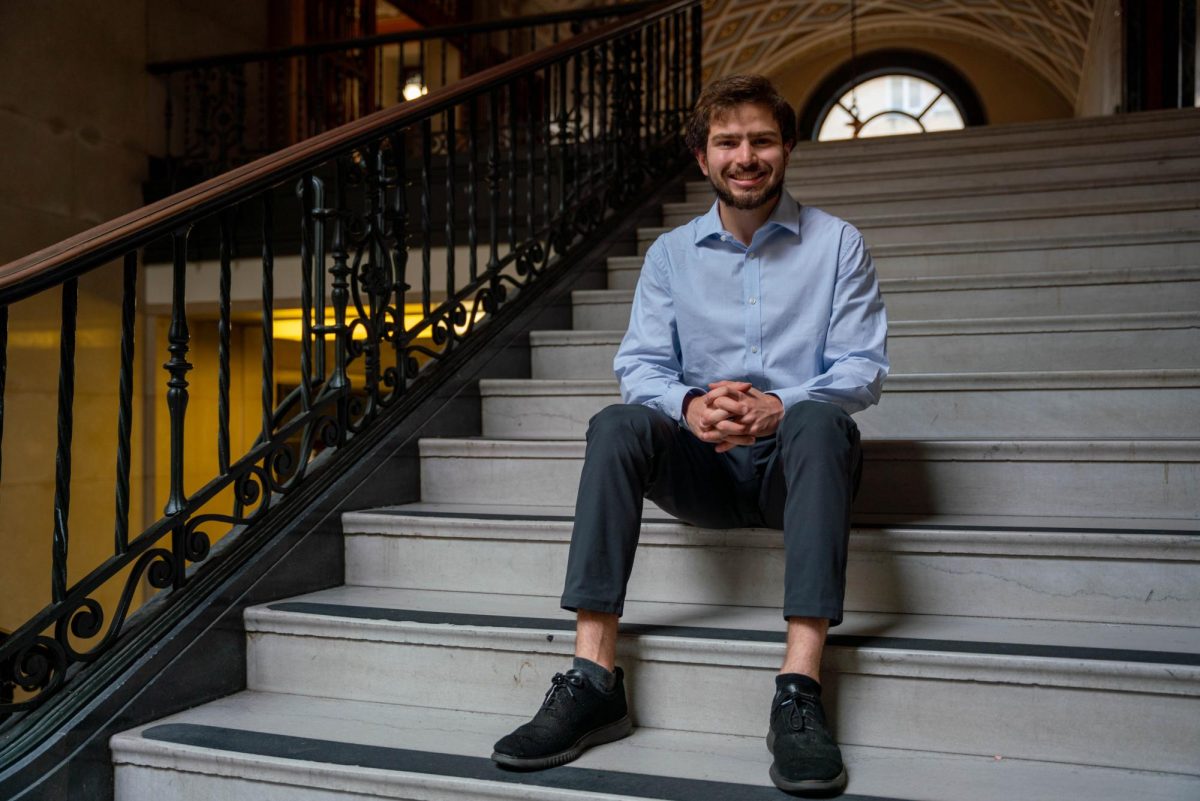History professor Daina Ramey Berry said throughout recorded history, people wrote about slaves like objects. But in her new book, she is trying to shift the narrative by exploring the personal lives of slaves instead.
“It bothered me,” Berry said. “So, I just committed myself to say that I’m a scholar of the enslaved, and the institution of slavery just happens to house the people I’m interested in studying.”
Berry spoke about her book “Sexuality & Slavery: Reclaiming Intimate Histories in the Americas” at Patton Hall on Thursday with co-editor Leslie M. Harris, a history professor at Northwestern University. Berry told the crowd of a couple dozen people that she is exploring sexual practices and intimacy in the history of slavery in her book.
“We wanted to get in spaces that often are sort of overlooked,” Berry said.
Berry said she and Harris wanted to talk about romantic intimacy in the book and not just sexual violence.
“What about the love and relationships that were created?” Berry said. “The friendships? It’s not just about the sexual exploitation … but that always rises to the top for obvious reasons.”
The idea for the book came from academic conferences Berry and Harris attended, where there were open dialogues about slavery and the history of sexuality, Berry said.
History graduate student Adrienne Sockwell, who attended the event, said she attended one of the Sexuality and Slavery conferences in 2011.
“The fact that they were talking about love, romantic relationships and intimate relationships of the enslaved people was really groundbreaking,” Sockwell said. “I didn’t even know that people asked those kinds of questions.”
Sockwell said now when people research, they may look at the stories and experiences of enslaved people differently.
“As a historian, there’s a huge impact because it makes me know that it’s my responsibility to help uncover stories,” Sockwell said. “People want to know about these stories. They want a way of understanding the lives of enslaved people outside of their life being property.”
Harris said the book should be understood as the beginning of a new generation of scholars.
“I think they’re going to ask more questions,” Harris said. “There’s also going to be more of an emphasis of queer work, which is both same-sex desire but also relationships that are not traditional. I think people are just going to be more open to asking different questions about enslaved people.”





















